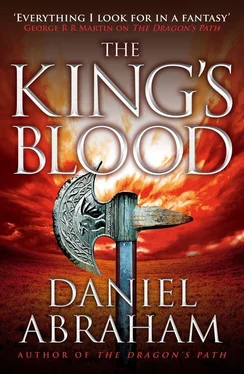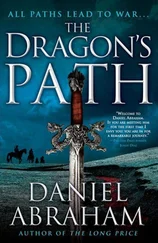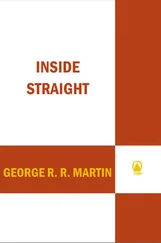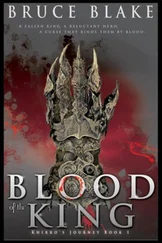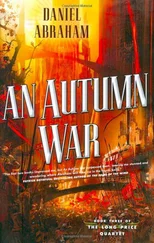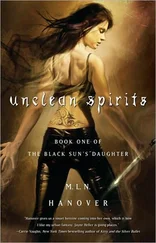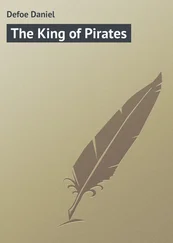Daniel Abraham - The King's Blood
Здесь есть возможность читать онлайн «Daniel Abraham - The King's Blood» весь текст электронной книги совершенно бесплатно (целиком полную версию без сокращений). В некоторых случаях можно слушать аудио, скачать через торрент в формате fb2 и присутствует краткое содержание. Жанр: Фэнтези, на английском языке. Описание произведения, (предисловие) а так же отзывы посетителей доступны на портале библиотеки ЛибКат.
- Название:The King's Blood
- Автор:
- Жанр:
- Год:неизвестен
- ISBN:нет данных
- Рейтинг книги:3 / 5. Голосов: 1
-
Избранное:Добавить в избранное
- Отзывы:
-
Ваша оценка:
- 60
- 1
- 2
- 3
- 4
- 5
The King's Blood: краткое содержание, описание и аннотация
Предлагаем к чтению аннотацию, описание, краткое содержание или предисловие (зависит от того, что написал сам автор книги «The King's Blood»). Если вы не нашли необходимую информацию о книге — напишите в комментариях, мы постараемся отыскать её.
The high and powerful will fall, the despised and broken shall rise up and everything will be remade.
And an old, broken-hearted warrior and an apostate priest will begin a terrible journey with an impossible goal: destroy a Goddess before she eats the world.
The King's Blood — читать онлайн бесплатно полную книгу (весь текст) целиком
Ниже представлен текст книги, разбитый по страницам. Система сохранения места последней прочитанной страницы, позволяет с удобством читать онлайн бесплатно книгу «The King's Blood», без необходимости каждый раз заново искать на чём Вы остановились. Поставьте закладку, и сможете в любой момент перейти на страницу, на которой закончили чтение.
Интервал:
Закладка:
“I will fear no caravan master,” Cithrin said in an artificial voice, the parody of stagecraft. Her bow was florid and unlikely to match. “My eternal thanks.”
Hornet returned the gesture in kind, perfectly, and they both laughed.
Cithrin knew the rule from the first time she’d traveled with the company, back when Master Kit had been its control: run against the stream. In a city struck by plague, comedy. In a rich city in prosperous times, tragedy. The power of the stories they told was in the distance they took the people standing in the audience. Tonight, they were doing The Dog Chaser’s Tale, which was about as low and bawdy a farce as Cithrin had ever seen. They did it well. Sandr’s delivery of the lines had, she was sorry to admit, a certain genius to them. But her attention wasn’t on the stage, but the men and women looking up at it.
When Smit leaped to the stage with the enormous leather phallus bulging out of his costume, the crowd roared and pointed. Tears streamed down their cheeks. They were hungry for this, Cithrin thought. They were desperate for pleasure, joy, laughter. And of course they were. They’d faced a conspiracy by their neighboring kingdom, the death of their king, war, and now a vicious battle on their own streets. They had earned their desires.
But she couldn’t look away. A boy barely old enough to shave was laughing so hard he rolled back on the stone-paved ground. On the stage, Charlit Soon pretended to be a cunning man changing his shape into a woman and then being wooed by another man, and an ancient-looking tooth-less woman slapped her knees and roared. It was too much. The laughter bordered on the grotesque. Cithrin sat on the side of the crowd, stage and audience equally in her view.
There was no sense of victory. There had been when she’d first arrived. There had been banners and cloth, and children running in the streets throwing handfuls of bright and shining confetti. When Antea had conquered Asterilhold, the empire had been giddy and drunk. The defeat of Dawson Kalliam had no joy for them. The hilarity wasn’t a mask. It was one side of a coin, and Cithrin had the growing suspicion that the image on the coin’s other side was a bleakness that Camnipol would be a long time in shedding. It would be comedy along the Division’s side for more than this season. The prospect left her with a feeling of dread and anxiety that was more personal than she liked.
Cary strode forth on the stage, the mock sword in her hand going limp and flaccid in the middle of her dueling challenge. The crowd laughed, and Cithrin didn’t. She gathered herself and walked along the side of the crowd and into the common room of Yellow House.
The press of bodies wasn’t as bad inside as out, but the heat was worse. The high summer of Camnipol meant a sunset that lasted until the early dawn was almost beginning. That it was dark now meant it was very late. There were a dozen men and women sitting at tables, drinking cider and beer out of brown mugs and eating hard cheese and twice-baked bread. The lovers of laughter had been drawn outside by the show. The ones who remained in the swelter were a somber bunch, which fit Cithrin’s mood nicely.
The beer was rich and thick, and the alcohol in it bit at the soft flesh inside her mouth. It was a beer to get drunk with, and tempting as it was, she wasn’t ready to lose herself. Not yet. Something was turning restlessly in the back of her mind. A thought or insight fighting its way into being. She looked down at the rough planks of the table and listened.
“He was with Asterilhold from the start,” a man behind her said. “You think he was really able to make it to Kaltfel so easy without old Lechan giving permission, may God piss on his dead heart.”
“But the Lord Regent knew, didn’t he?” the woman beside him said. “Flushed the traitors out. Killed Lechan, and he’ll break down the rest of them when he’s ready. You watch.”
“You heard what he was doing while the battle was on?”
“Up in the Kingspire calling the whole damned thing like he was a kid playing sticks.”
“No,” the woman said. “That’s what they want you to think, but he was out in the streets the whole time. Dressed like a beggar, and he’d go right into the enemy lines and see what they were planning. No one looked at him twice.”
“That’s true,” another man said. He was older, with a white mustache and bloodshot skin. “I saw him. Knew him. I mean, didn’t know it was him. Old Jem, he called himself. I knew there was something odd up with Old Jem, but I never guessed the truth.”
“And he talks with the dead,” the first woman said. “My cousin guards the tombs, and the thing all his men know that no one talks about is how the Lord Regent goes there all the time. All the time. Twice a day, sometimes. Walks right into the tombs. My cousin says if you go listen, you can hear Palliako talking just like he was sitting here like we are. Joking and asking questions and having his half of a debate. And sometimes you can hear other voices too, talking back.”
“He’s no cunning man,” the first man said. “I’ve known cunning men. Half of them couldn’t magic up a fart. Palliako’s something else, and we’re damned lucky to have him on the throne. Damned lucky.”
“No one else could have seen through Kalliam,” the man with the white mustache said. “I sure as hell didn’t. And you know what else no one talks about? Kalliam’s advisors? They were all Timzinae. Now you tell me that’s coincidence.”
Cithrin listened, her hand around her mug. She forgot to drink from it. Instead, she listened to story pile upon story pile upon story as Geder Palliako grew toward legend.
Clara
The soldiers came with an edict from the Lord Regent. It wasn’t that Clara had expected it, so much as that she wasn’t surprised when it happened. Indeed, there was a level on which it was a relief. The long days of anticipation after Dawson’s capture had been perverse in their normalcy. Waking in her room without him, speaking with the servants and the slaves, walking through the gardens. It was the same routine that she’d kept while he was away leading the war on Geder’s behalf. Only instead, her husband was in the gaol. The anticipation of consequences had been so terrible that when the first one came, it felt almost like relief.
She stood in the courtyard before the house as they took her things away. The bed that her children had been conceived and born in. The violets from her solarium. Her gowns and dresses. Dawson’s hunting dogs, whining and looking confused on the thin leather leads. She had a purse of her own and a bag she’d put together during the grace period the captain had allowed her. It wasn’t in the order. If he’d lifted her on his shoulder and thrown her to the street, he would have been within the letter of Geder Palliako’s law. He hadn’t, and she was grateful.
“They can’t do this,” Jorey said. His voice was tight as a violin string. Outrage made him taut.
“Of course they can, dear,” Clara said. “You didn’t think they would let us go on living the way we’d been, did you? We’re disgraced.”
“You didn’t do anything wrong.”
I did , though , she thought. I loved your father. And that is a treason in which I persist. She didn’t say it. Only took her youngest son by the hand and led him away.
The staff of the mansion, servants and slaves, stood at the street, their personal belongings in their hands. They looked like survivors of a cataclysm. Clara went to them, their mistress for the last time. Andrash still had the chain around his neck; his eyes were wide and horrified. Clara raised her hands.
“I am afraid that, as I think you’ve seen, the needs of the house have been somewhat reduced,” she said. There were tears in her eyes, and she clenched her jaw against them.
Читать дальшеИнтервал:
Закладка:
Похожие книги на «The King's Blood»
Представляем Вашему вниманию похожие книги на «The King's Blood» списком для выбора. Мы отобрали схожую по названию и смыслу литературу в надежде предоставить читателям больше вариантов отыскать новые, интересные, ещё непрочитанные произведения.
Обсуждение, отзывы о книге «The King's Blood» и просто собственные мнения читателей. Оставьте ваши комментарии, напишите, что Вы думаете о произведении, его смысле или главных героях. Укажите что конкретно понравилось, а что нет, и почему Вы так считаете.
